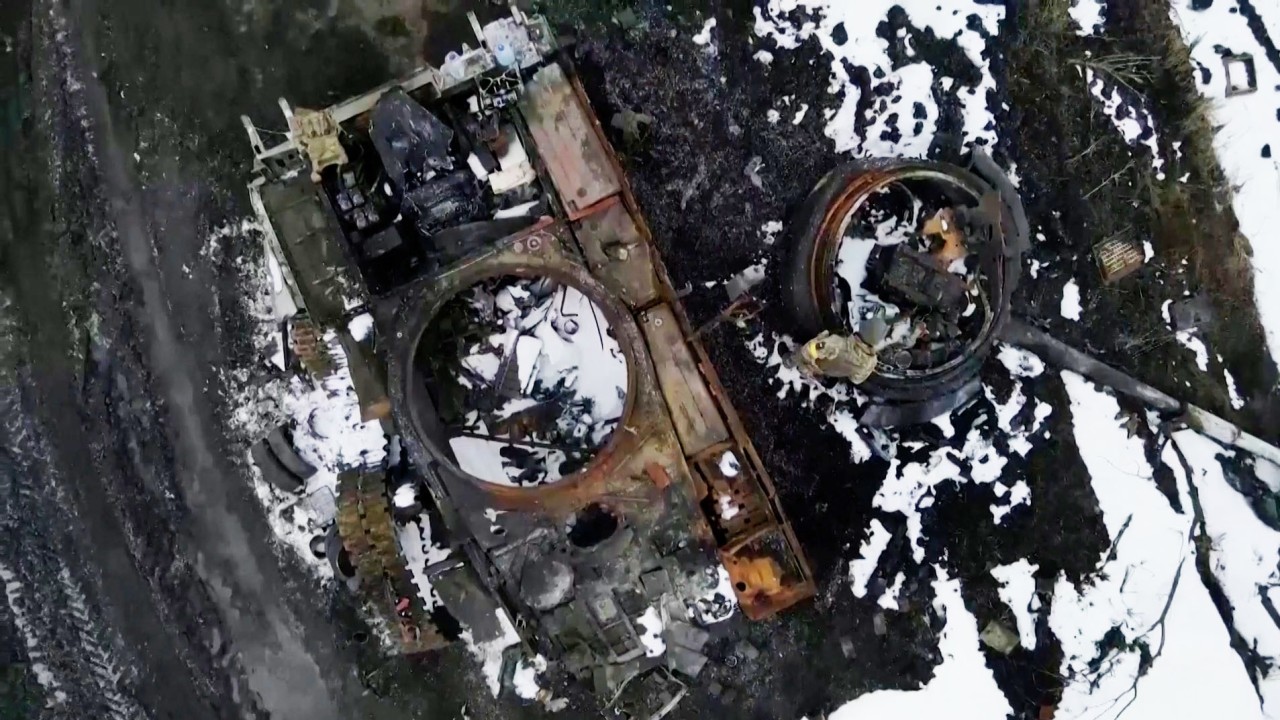
Ukraine war: Xi Jinping ‘is unsettled’ by invasion, CIA director says
- US spy chief William Burns says Xi’s own intelligence community ‘doesn’t appear to have told him what was going to happen’
- US officials admit that, despite predicting Russian President Vladimir Putin’s invasion plans, they had underestimated Ukraine’s ability to defend itself
China overestimated Russia’s ability to achieve a decisive victory over Ukraine, Moscow overestimated Beijing’s support and the US overestimated Russian military prowess, top US intelligence chiefs told senators on Thursday as they assessed the unfolding crisis.
Russian President Vladimir Putin’s invasion has undercut President Xi Jinping’s goals by knocking global growth even as China’s economy wobbles, they added. And by driving Western allies closer together, Moscow has undercut Beijing’s ability to play one off against the other and damaged China’s reputation by its association with Russia.
“President Xi, in particular, is unsettled by what he’s seen, partly because his own intelligence doesn’t appear to have told him what was going to happen,” William Burns, director of the Central Intelligence Agency, told the Senate Select Committee on Intelligence.
“I don’t think they anticipated that the Russian military was going to prove largely ineffective so far. I don’t think they anticipated that the West would react with such resolve.”

Intelligence officials also said it appeared that Putin misjudged how much support he could count on from China.
China, which has long espoused the inviolability of sovereign nations, has tried to stake out an uncomfortable middle ground as global outrage has mounted. It has blamed the US for fomenting the invasion, but stopped short of supporting Russia at the UN – abstaining on resolutions condemning it – or openly defying the tough sanctions the West has imposed on Moscow.
Tepid Chinese support was also seen after Russia invaded Crimea in 2014, Burns said: Beijing drove a hard bargain involving pipelines Moscow sought as the Western sanctions imposed at that time mounted.
“He may be overestimating the extent to which the Chinese leadership is willing or able to help with his invasion of Ukraine,” Burns, a former US ambassador to Russia, said of Putin.
“There’s not going to be any easy out for President Putin as he looks at trying to deal with those economic consequences – not from the Chinese, not from anyone else.”
During the three-hour hearing, senators praised the US intelligence community for accurately predicting Putin’s invasion, identifying his “false flag” efforts to name Ukraine as the aggressor and warning the world of his plans.
But the committee also took intelligence agencies to task for missing pieces of the puzzle.

“We assessed prior to the invasion that he was underestimating the Ukrainians’ likely resistance, so I think we did well there,” said Avril Haines, the director of national intelligence.
“We did not do as well in terms of predicting the military challenges that he has encountered with his own military.”
Lieutenant General Scott Berrier, director of the Defence Intelligence Agency, added that he failed to give the Ukrainians enough credit.
“I questioned their will to fight,” he said. “That was a bad assessment on my part because they have fought bravely and honourably and are doing the right thing.”
In a separate briefing Thursday, White House Press Secretary Jen Psaki acknowledged that US intelligence fell short in predicting Ukrainians’ resolve, adding that Putin also underestimated it.
In recent days, Moscow has claimed that the US is financing biological weapons research in Ukraine, reports decried by the Pentagon and the White House as “preposterous” but fanned by Beijing, adding to US-China tensions over Beijing’s support for Moscow.
Ukraine bioweapons claim opens new front in China-US tensions
Spy chiefs warned Thursday that such disinformation tactics were often employed by Russia as cover for its own subsequent use of biological weapons – including operations against Putin’s critics.
Ukraine has a little over a dozen biological research labs, Haines said, but these are focused on containing pandemics and safeguarding against disease, adding that the US helps ensure these meet safety standards as it does in several other countries.
“This is a classic move by the Russians,” she said.
While there have been fewer than expected disinformation campaigns from Moscow since the invasion started, intelligence officials said they are bracing for more as the war unfolds. US cybercommand experts also have worked with Ukraine since 2015, when Russia shut down the nation’s energy supplies, to harden Ukrainian strategic assets against Russian hacking, they added.
“There’s obviously a Russian calculus that will play out here and we’ll be very, very vigilant to see what occurs there,” said General Paul Nakasone, director of the National Security Agency.
Thursday’s intelligence hearing was aimed at assessing global threats facing the US – a companion to a House of Representatives hearing on Wednesday that focused more on military issues. The intelligence chiefs and senators said that China remains among the greatest military, political and economic challenges the US has confronted since World War II.

“It is constantly important, and I always make the point, that our beef when it comes to China is not with the Chinese people or the Chinese diaspora, but is with the Communist Party,” said Senator Mark Warner, the Virginia Democrat who is the committee’s chairman.
The US remains a major target of Chinese hacking, ransomware and theft of proprietary corporate intellectual property, intelligence officials said, adding that the problem is underreported.
As the war in Ukraine drags on, the officials said, a key question will be whether Putin recognizes that he does not have an endgame, cuts his losses and orders Russian troops to leave Ukraine.
“Given Putin’s track record, given the fact that he’s someone who hates to act out of what he believes to be weakness, that he needs to concede or admit mistakes, that’s probably a long shot,” Burns said. “But, you know, that’s our hope.”
Additional reporting by Owen Churchill


